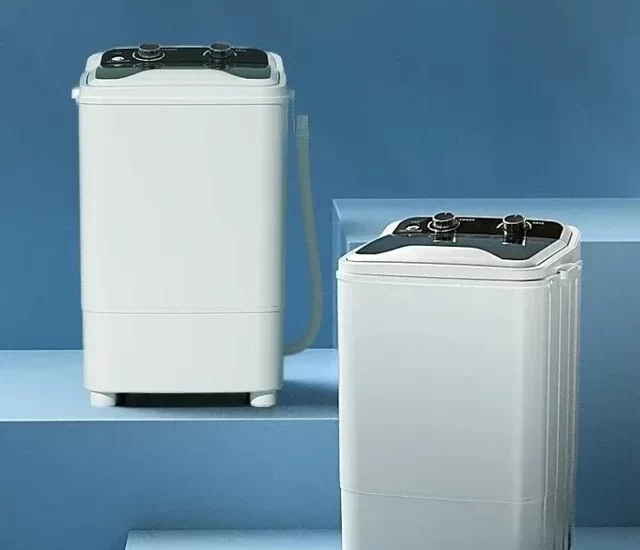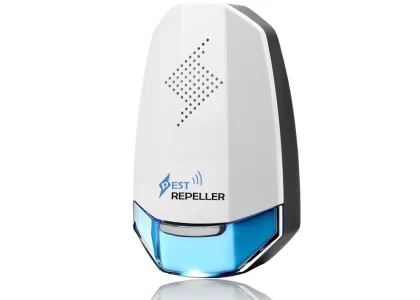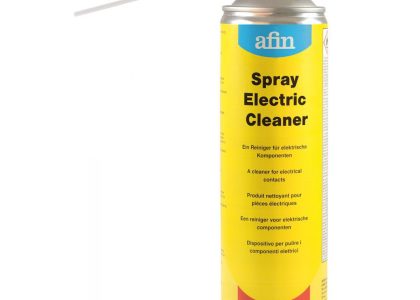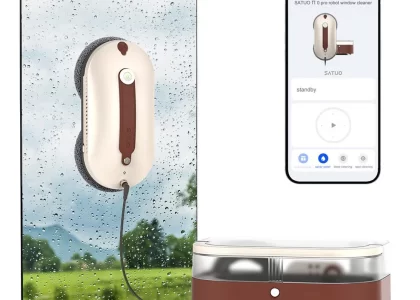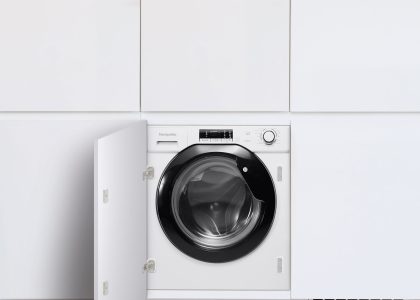Owning a washing machine is a great convenience. It makes dirty laundry disappear with just a press of a button. However, many people overlook the importance of cleaning the washing machine tub itself. A dirty tub can be a breeding ground for bacteria and mold, which can lead to foul odors and even make your clothes dirtier. This guide will show you step-by-step how to clean a washing machine tub effectively, ensuring your laundry stays fresh and hygienic.
 Some common types of washing machines:
Some common types of washing machines:
Washing machines come in various types, each designed to meet different laundry needs and preferences. Here are some common types of washing machines:
- Top-Loading Washing Machines
- Agitator Top-Loaders: These have a central post with paddles that move clothes around for cleaning.
- High-Efficiency (HE) Top-Loaders: These use less water and have no agitator, relying instead on impellers to move laundry.
- Front-Loading Washing Machines
- Front-Loading Washing Machines have doors on the front and tumble clothes through water. They are generally more energy-efficient and use less water than top-loaders.
- Washer-Dryer Combos
- These units combine a washing machine and a dryer in one appliance. They are ideal for small spaces where separate units wouldn’t fit.
- Stackable Washing Machines
- A front-loading washer and dryer can be stacked on top of each other to save space.
- Portable Washing Machines
- These are smaller units that can be easily moved and stored. They are perfect for apartments or places where a full-sized washer isn’t feasible.
- Compact Washing Machines
- Smaller than standard machines but permanent and typically installed under-counters or in closets.
- Automatic Washing Machines
- These can be either top-loading or front-loading and include features like automatic water level sensing, various wash cycles, and sometimes even smart connectivity.
- Semi-Automatic Washing Machines
- These usually have two tubs, one for washing and one for drying. The user has to transfer clothes manually from one tub to the other.
Each type has its pros and cons, so the best choice depends on individual needs, space constraints, and laundry habits.
Each type has its pros and cons depending on factors like the size of the space, efficiency requirements, and ease of installation.
 Why Cleaning Your Washing Machine Tub is Important
Why Cleaning Your Washing Machine Tub is Important
Preventing Buildup and Residue
Over time, detergents, fabric softeners, and minerals from water harden and leave residue on the tub and other parts. This buildup can affect the machine’s efficiency.
Eliminating Odors
A foul smell from your washing machine indicates mold or bacteria. Cleaning the tub regularly helps to eliminate these odor-causing agents.
Improving Efficiency
A clean washing machine operates more efficiently. It uses less water and electricity, which is good for your utility bills and the environment.
 Ensuring Health Safety
Ensuring Health Safety
Mold and bacteria can harm your health. They can cause respiratory issues and other health problems. Regular cleaning ensures your washing machine is safe to use.
Cleaning Supplies Needed
Before you start, gather your cleaning supplies:
- White Vinegar
- Baking Soda
- Scrub Brush
- Microfiber Cloth
- Tub Cleaning Tablets (optional)
- Liquid Bleach (optional)
- Gloves
Step-by-Step Cleaning Process
Step 1: Empty the Washing Machine
Make sure the washing machine is empty. Remove any clothes or loose items. Check and clear out any pockets in case debris fell out during a previous wash.
 Step 2: Add White Vinegar and Baking Soda
Step 2: Add White Vinegar and Baking Soda
White vinegar is an excellent cleaning agent. It dissolves stains, deodorizes, and kills bacteria. Baking soda enhances the cleaning power and removes odors.
- Top-Load Washing Machines:
- Set your washing machine to the largest load size and the hottest water setting.
- Add 4 cups of white vinegar to the water.
- Let the machine run for a few minutes to mix the vinegar with the water.
- Add 1 cup of baking soda.
- Front-Load Washing Machines:
- Add 2 cups of white vinegar to the detergent dispenser.
- Run a hot water cycle.
- Sprinkle ½ cup of baking soda into the drum and run a short, hot cycle.
Step 3: Scrub the Tub and Other Components
For a thorough cleaning, scrub the tub and other areas that might harbor dirt.
- Top-Load Washing Machines:
- Once the water fills up, pause the washing cycle.
- Use a scrub brush to scrub the interior. Pay attention to the top rim and agitator.
- Let the mixture sit for an hour to allow the vinegar and baking soda to break down grime.
- Finish the washing cycle.
- Front-Load Washing Machines:
- Dip a scrub brush into the vinegar solution.
- Scrub the interior of the drum, the rubber gasket, and the detergent dispenser.
- Make sure to reach all crevices.
- Rinse with a short, hot cycle if necessary.
Step 4: Clean the Detergent Dispenser and Filters
The detergent dispenser and filters can accumulate residue. Remove and clean them thoroughly.
- Detergent Dispenser:
- Remove the dispenser tray if possible.
- Soak it in warm soapy water.
- Scrub with a brush to remove any residue.
- Rinse and dry before placing it back.
- Filters:
- Locate the filters (refer to your manual if unsure).
- Remove and clean them under running water.
- Use a brush to remove any lingering dirt.
- Replace them once cleaned.
 Step 5: Wipe Down the Exterior
Step 5: Wipe Down the Exterior
The exterior of the washing machine also needs cleaning. Use a microfiber cloth and a mild cleaner.
- Dip the cloth in warm, soapy water.
- Wipe down the exterior surfaces, including the knobs and door.
- Dry with a clean cloth to avoid streaks.
Step 6: Add Tub Cleaning Tablets (If Desired)
For additional sanitation, use tub cleaning tablets. These tablets are designed for deeper cleaning.
- Application:
- Place the tablet in the drum.
- Run a full, hot water cycle.
Step 7: Perform a Final Rinse Cycle
To ensure all cleaning agents are washed away, run a final rinse cycle.
- Top-Load and Front-Load Washing Machines:
- Set the machine to a hot water setting.
- Run an empty cycle.
Additional Tips for Maintaining a Clean Washing Machine Tub
Use the Right Detergent
Choose high-efficiency (HE) detergents if recommended. These detergents produce fewer suds and reduce residue.
Avoid Overloading
Do not overload the washing machine. Overloading can prevent clothes from washing properly and cause mechanical issues.
Leave the Door Open
After each wash, leave the door open for a while. This allows the interior to air dry, reducing the chance of mold and mildew formation.
Clean the Machine Monthly
To keep your washing machine in top condition, clean it once a month. Regular maintenance prevents buildup and ensures efficiency.
 Troubleshooting Common Issues
Troubleshooting Common Issues
Persistent Odors
If the washing machine still smells, you might need to use liquid bleach. Add 1 cup of bleach to the tub and run a hot water cycle. Ensure the room is well-ventilated when using bleach.
Stubborn Stains
For stubborn stains or residue, make a paste of baking soda and water. Apply it to the stained area, let it sit for 20 minutes, then scrub and rinse.
Inefficiency and Noise
If your washing machine is noisy or inefficient even after cleaning, it might need professional servicing. Contact a qualified technician for an inspection.
Leaks
Check the rubber door gasket and hoses for signs of wear and tear. Replace if necessary. Ensure connections are tight to prevent leaks.
Conclusion
Cleaning your washing machine tub is essential for maintaining efficiency, eliminating odors, and ensuring health safety. By following these step-by-step instructions, using the right cleaning supplies, and adopting maintenance habits, you can keep your washing machine in pristine condition. Regular cleaning prevents problems before they start, helping your machine last longer and work better. Incorporate these steps into your routine, and enjoy fresh, clean laundry every time.
Cleaning a washing machine tub may seem like a chore, but the benefits are worth it. With a clean machine, your laundry experience becomes more pleasant, and your clothes come out cleaner and fresher. So don’t wait any longer – give your washing machine the care it deserves.

